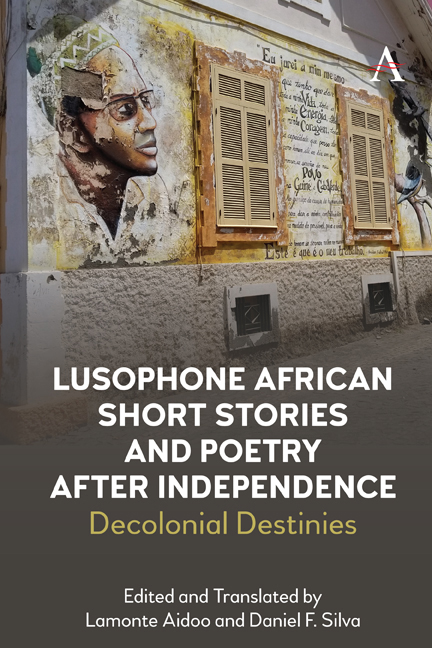Chapter 23 - Olinda Beja
Published online by Cambridge University Press: 23 February 2022
Summary
Introduction
Born in the San Toméan town of Guadalupe in 1946, Olinda Beja lived the early years of her life under Portuguese colonial rule, until her family relocated to Portugal during her childhood. More precisely, she spent the next years of her life in Viseu, in the Beira Alta province of Portugal's central region. She later earned her bachelor's degree in modern languages and literatures from the University of Oporto and currently teaches Portuguese and Lusophone cultures in Lausanne, Switzerland. Her father was a Portuguese national, while her mother's family continues to reside in Batepá, where Beja spends her time in São Tomé e Príncipe. She moved back to her country of birth in 1985, ten years after independence.
Although little more is widely known about Beja's biography, she can be considered as part of a wave of, according to Jared Staller, “dual-culture children in Portugal (born in São Tomé e Príncipe), where they lived with their families if they were mestiço or had been sent for education” (1). This has undoubtedly contributed to her work, both in terms of experiences to place on the page as well as a unique lens through which to perceive the world, beyond São Tomé and Príncipe and the former imperial metropolis. As Staller also notes, moreover, similar exilic experiences were crucial to other “dual-culture children” (mestiço or not) of São Tomé e Príncipe who also “became remarkable poets, scholars, and expository writers” (2) that challenged imperial power; as in the cases of Francisco José Tenreiro, Caetano da Costa Alegre, and Alda Espírito Santo.
An acclaimed poet (with eight books of poetry), she is also the author of two novels, six collections of short stories, and three collections of children's stories, and is regarded as one the leading literary voices of São Tomé and Príncipe. Drawing on her own experiences of exile and postcoloniality, Beja's poetic trajectory across her collections offers an important rebuttal to the epistemic, subjectivizing, and historicizing functions of empire. In this regard, her work has labored toward new idioms through which to examine, challenge, and move beyond the persistence of Western/ northern global hegemony by evoking, appropriating, and reworking empire's signifiers in order to remap the signified terrain of power while bringing about anti-imperial forms of local and global consciousness.
- Type
- Chapter
- Information
- Lusophone African Short Stories and Poetry after IndependenceDecolonial Destinies, pp. 237 - 246Publisher: Anthem PressPrint publication year: 2021



